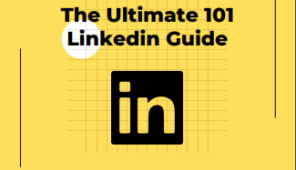Ways to Downsize your Career as a Doctor: Getting more from doing less
While many medics feel overwhelmed balancing clinical duties with additional responsibilities and personal life, few consider sustainable ways to reduce their workload for overall well-being. Despite fears and doubts, it's vital for doctors to seek a balance that declutters their life, ensuring both professional and personal harmony.

Downsizing is commonly associated with retirement, however in such a busy world and particularly practicing medicine at any stage in your career, it’s remarkably easy to feel overwhelmed by it all.
As medics, we’re encouraged.. or even expected to do additional projects alongside the normal full-time clinical work, perpetual exams, courses, conferences and trying to sustain a life outside work.
Everyone struggles with this.
However, beyond the noise and chaos, relatively few doctors really take the time to consider how to reduce their workload sustainably so they can live a long, healthy and happy life; even if it’s temporary or serving a purpose for example, health or social reasons. For many it just doesn’t seem possible and is perhaps tied in with a considerable amount of fear and anxiety.
For those considering a change with a view to declutter your life and mind, here are a few points which may help you on your way to living and working in a balanced way which works for you, regardless of your situation.
1. Decide on your ‘why’?
There may be several reasons why you are considering downsizing. Write them down and highlight which is the most important to you. This will help guide your decision making later.
2. List your work and non-work responsibilities (includes leadership, management, research, parenthood and more!)
Which do you really enjoy? Which are draining you? Which are no longer challenging for you? Which is most important to you moving forward? Again, writing them down will enable you to visually see or understand why you’re considering downsizing and will enable you to identify areas which are easiest to tackle in the short term and the ones which will take more time to address further down the road.
3. How can you downsize what you’re doing right now?
This depends on your current situation but here’s some quick answers to common problems within a role:
3a Ways to address workload: Tell your manager / supervisor this is an issue in a formalised way and present them with suggestions on how this can be reduced. Be honest about how this is affecting you day to day. Talk to them, but also follow up with an email outlining your discussion and your suggestions with an agreed follow-up plan. Get someone you trust to support you through it.
How to reduce it: Prioritise tasks, delegate out as many as possible to other colleagues, explore how to work more efficiently by cutting out non-productive activities where you can, don’t try to do everything (just because people asked); if anything is left at the end of the day – log it and go home. Address it tomorrow… or never if it really isn’t that important.
3b Ways to address time: Try to understand why your work is so time consuming or too much for you right now. Is it the workload? Do you feel you don’t have enough time in what you’ve been given to do your tasks? Do you want to do more than you’ve been given? Is there an ingrained culture to stay on longer (common in healthcare). Are you overwhelmed or underwhelmed during the time you spend at work? Both can lead to stress.
How to reduce it: Reducing work time can include reducing your hours, or even simply sticking to contractual hours without going over, making sure non-work days are just that, and avoiding email correspondence outside of work hours. If you work night shifts as part of your job, and you’re stressed or having problems sleeping, it’s extremely important you mitigate this factor as much as possible because it can affect the quality of your work.
3c Ways to address responsibilities: If you are a doctor, leader, manager, researcher, and likely perpetually working towards various qualifications alongside your 2 health tech startups, you should regularly be taking stock in how sustainable it is to balance all these things and still be productive.
How to reduce it: Re-evaluate what is really important to you (see points 1 and 2). For most, it is more effective to limit or reduce the managerial responsibilities – ie. tasks that involve looking after other people’s needs in a work capacity, as this factor can be highly variable and draining. Depending on your clinical work, you can choose to reduce the highly intensive, cognitive and/or physical tasks first to see whether this helps, OR only focus on the critical tasks for short periods and eliminate the other less important responsibilities.
4. Find another job in your hospital, department, or trust
If it’s too much in your current role, consider looking for a role with fewer responsibilities without having to go too far. Simply have a chat with the powers that be accordingly. If you’re in training job as a doctor, why not take a break and do a ‘trust’ employed role for a period instead? Also consider applying for some non-clinical posts in your hospital with regular hours which could be anything from management to medico-legal. Wherever your transferable skills will take you! You could also create a role if your department is open minded enough!
5. Move on to greener pastures completely
Looking at taking a clean break? Great! Just make sure you don’t get entangled in the same problems you had in your current role. Don’t commit too early and overcommit which is relatively easy to do when you’re trying to impress in a new role.
Also be aware that non-clinical roles may not always mean fewer hours. As an example, many doctors seek to move into management consultancy, however seem oblivious to the fact that you may need to work way beyond your contracted hours, travel nationally or internationally, and have less freedom where it comes to taking breaks or leave. This can vary depending on the employer, therefore it is really important you do your homework accordingly.
6. Locum whilst you’re deciding what to do
Locuming or sessional work is a commonly great way for doctors to have more flexibility and autonomy in their week. They choose their shifts according to their lifestyle needs. The downside is that for those who are not good at self-regulating with their wellbeing in mind, this could result in overbooking shifts resulting in weeks without a break. Make sure you avoid working more than 12hrs per shift, preferably no more than 7 shifts in a row without a minimum of 48hrs break, and schedule in your ‘off’ time religiously.
7. Have a downsizing career plan
Just like a personal development plan, whether your downsizing is meant to be temporary or for the foreseeable future, make sure that you’ve penned down a plan on how you’re going to ensure that change happens, and how you’re going to measure that it’s happening well enough for your ‘why’ in point 1.
8. Talk to someone who’s intentionally downsized in their career
Learn from others who will always have some great tips on what’s worked well and not so well for them. Build your support network to help you succeed.
9. Work on changing your mindset
Any change can be daunting, even if it is for positive intention. Most of the journey will be spent on you challenging your preconceived or institutionally grown ideas of what you should be doing, rather than what you need right now.
“Everyone else is doing all of this stuff, so why can’t I?”
“I won’t be seen as a credible doctor if I do less”
“Doing less means less money – I can’t afford to do that”
Again, go back to you ‘why’. Also career coaches, can be a great source of support during this time, in addition to point 8.
10. Have your money argument as early as possible
Most doctors will resist downsizing because of money. Ongoing financial commitments which won’t be compatible with a reduction in income – inevitable if you’re planning to do less. Right?
Well, this is a perfect opportunity for you to re-evaluate your financial situation and/or discuss with your financial advisor on how you can make it work for you. Because you can make it work for you, if you want it to.
Doing less work doesn’t have to mean less money. How can you increase your income and work fewer hours?
Reducing your financial outgoings (e.g. mortgage, family expenses, credit cards) are always possible if your circumstances change, without having to make radical lifestyle changes such as selling your house (unless you want to of course!)
11. Explore the possibilities of job sharing
We’ve seen many doctors get together and apply for full time jobs as a pair. Commonly, but not exclusively seen amongst women with childcare commitments. Particularly at Consultant level, this may seem an appealing prospect and in some ways competitive as you’re bringing a wider pool of talents to a job than one person would.
12. Address commuting issues
Don’t forget to consider the impact your commute has on your general wellbeing. No matter the duration, commutes can be quite stressful depending on transportation and environment. Mitigating this alone may be a reasonable way to downsize your work. As a doctor, this can be quite difficult considering most of the time you’re needed in a specific location at a specific time. However an increasing number of doctors are performing clinical work remotely via video or telephone consultations as an alternative.
Flexible working where you can actively avoid rush hour, or spend time working from home without the distractions you get at work, may help address any issues you may be facing which has led to your desire to downsize. May not be possible every day, but some days may be a good start.
13. Take a career break
If you’re at, what feels like’ a crisis point, and you can’t continue as things are, it would be a good idea to take a career break to give yourself time and headspace to switch off, relax and decide how best to move forward once you’ve recalibrated. Career breaks are possible in almost any contractual arrangements, but not guaranteed and highly dependent on your employer. If you’re a trainee in the UK, you can apply for this through your deanery.
For immediate need of a break, see your doctor who may be able to sign you off work for a period if they feel that you’re unfit to continue in your role at this time. Alternatively ask your employer if you can see Occupational Health for further work-specific advice.
14. Take a break from your studies
For any institutional commitments, such as courses, pHDs, research, training programmes – it’s important to go back to your why again, and see whether this is compatible with your needs for your career planning in the future. We find that doctors are hugely addicted to spending money on qualifications without really understanding how it fits in with their career trajectory.
If you’re interested in business, don’t feel obliged to spend £30k on an MBA unless it’s clear what your return on investment is.
Most people who go into an area, learn predominantly by doing – especially in business.
If you’re not sure on whether to continue a course or qualification, simply apply to take a break from it.
15. You don’t need to be in a training programme to become a Consultant in your specialty
I’ve seen plenty of doctors who are struggling with various aspects of their training programme, and/or battling through despite significant life changes that make this challenging (e.g. health, other interests, social issues). Yet, they continue to press through or desperately hold onto their training numbers even if they’ve been off work for a considerable period of time with no clarity on how to return to work sustainably.
I personally think that these doctors should consider quitting their training programme and, if and when future work is possible, find a non-training post which works for them and continue to gather evidence which can go towards becoming a Consultant via the CESR route.
Specialty training programmes in the UK are currently optimally designed for doctors who can continually commit to a prescribed period of training with all the nuts and bolts that go with it. For those that need part time training or perpetual career breaks, it can really be a tricky situation which is largely dependent on how supportive and understanding their deanery is (which is hugely variable).
If you’re someone looking to do less and you’re in a training programme which isn’t working for your lifestyle for whatever reason, I would highly consider other ways to make life easier for yourself whilst still achieving your goals. The CESR route is one legitimate way to do this.
15. Meditate
I believe meditation is a wonderful way to develop self consciousness, clarity and focus.
Whether it’s sitting and chanting for a few minutes to hours each day, or simply going for a quiet walk in a park, give yourself some distraction-free time of 10 minutes or more each day to quieten your mind. Again, helps on the decision-making moving forward.
16. Take retirement
Did you know that anyone can retire from either a job or profession at any time? There’s different forms of retirement, but the common ones you may have heard of are statutory, where you are entitled to stop working at a certain age and receive your pension, or ill health, where you’re too unwell to work in your job, or at all in the foreseeable future.
Some people however, just retire because they feel it’s time for them to move on from a certain role for various reasons. Think about professional athletes, those who’ve hit a windfall of cash, or those that’ve had enough and simply stepping out.
If you’re certain you’re moving on and never going back – well, great!
Many people may retire from some aspects of their job or life, and not others, and some may simply reduce their hours and continue working with their pension funding the days they’re not working.
17. Downsize your life
It may be that your desire to downsize in your career is just a part of your overarching desire to reduce some of the complexities in your life.
Other non-work responsibilities may be burdensome or overwhelming for whatever reason. Some aspects you will have more control over than others. It’s therefore important you get some help to address these factors which could be from any relevant professional depending on the main issues whether it’s financial, health, social, relationships or otherwise.
The principles are the same – it’s important to outline your why and make a plan to go with it.
18. Pack up and go travelling
Sounds idyllic right? Everything you need on your back and searching for a new start elsewhere in this world.
Possible, but you’ll find that whatever you’re escaping will follow you unless you address the underlying issues and resolve them.
19. Listen to the Minimalists Podcast and other decluttering ideas
A great podcast by a couple of guys in the US on finding joy in doing and having less in all aspects of your life. Check it out!
You may also want to consider applying some of Marie Kondo’s decluttering methods to your work and/or life.
We’re continually adding to this list! Have any ideas that worked for you?
Email us: mfteam@medicfootprints.org
Abeyna Bubbers-Jones
Latest posts by Abeyna Bubbers-Jones (see all)
- How to express your interest for job opportunities on the Medic Footprints website - 31st December 2021
- Books for Doctors in Career Change: The Ultimate List - 5th May 2020
- Strategy Consulting Webinar with Dr. Rohit Chitkara from PWC UK - 29th April 2020


